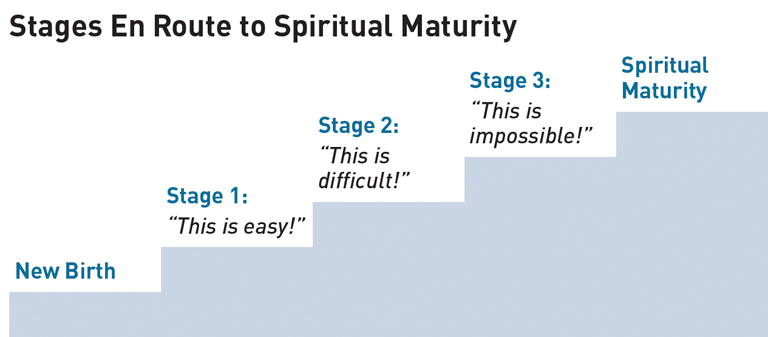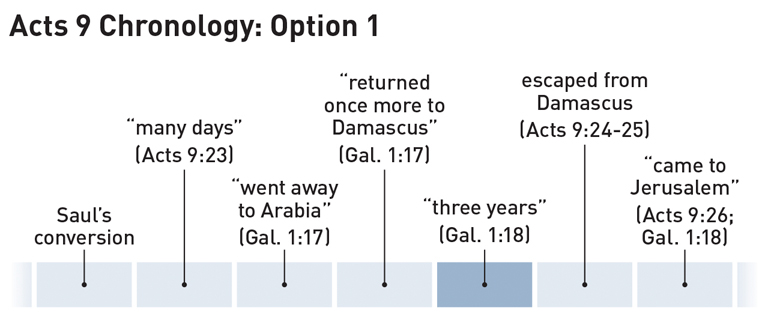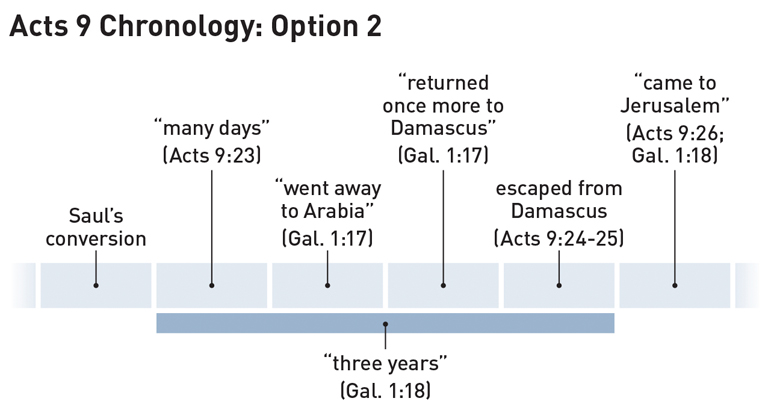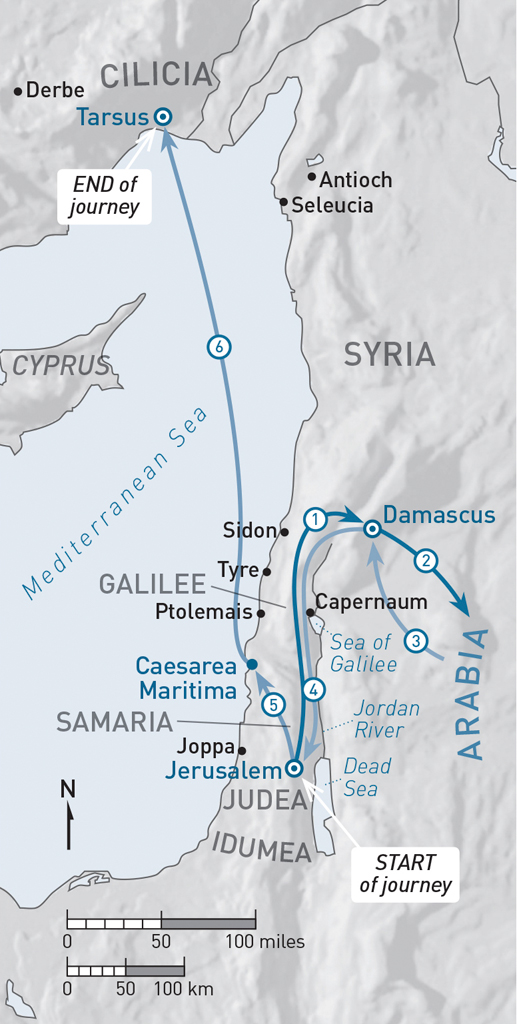A MAN IN NEED OF A NEW NAME
ACTS 9:23-31
NASB
23 When many days had elapsed, the Jews plotted together to do away with him, 24 but their plot became known to Saul. They were also watching the gates day and night so that they might put him to death; 25 but his disciples took him by night and let him down through an opening in the wall, lowering him in a large basket.
26 When he came to Jerusalem, he was trying to associate with the disciples; [a]but they were all afraid of him, not believing that he was a disciple. 27 But Barnabas took hold of him and brought him to the apostles and described to them how he had seen the Lord on the road, and that He had talked to him, and how at Damascus he had spoken out boldly in the name of Jesus. 28 And he was with them, [a]moving about freely in Jerusalem, speaking out boldly in the name of the Lord. 29 And he was talking and arguing with the [a]Hellenistic Jews; but they were attempting to put him to death. 30 But when the brethren learned of it, they brought him down to Caesarea and sent him away to Tarsus.
31 So the church throughout all Judea and Galilee and Samaria [a]enjoyed peace, being built up; and going on in the fear of the Lord and in the comfort of the Holy Spirit, it continued to increase.
9:26 [a]Lit and 9:28 [a]Lit going in and going out 9:29 [a]Jews who adopted the Gr language and much of Gr culture through acculturation 9:31 [a]Lit was having
NLT
23 After a while some of the Jews plotted together to kill him. 24 They were watching for him day and night at the city gate so they could murder him, but Saul was told about their plot. 25 So during the night, some of the other believers[*] lowered him in a large basket through an opening in the city wall.
26 When Saul arrived in Jerusalem, he tried to meet with the believers, but they were all afraid of him. They did not believe he had truly become a believer! 27 Then Barnabas brought him to the apostles and told them how Saul had seen the Lord on the way to Damascus and how the Lord had spoken to Saul. He also told them that Saul had preached boldly in the name of Jesus in Damascus.
28 So Saul stayed with the apostles and went all around Jerusalem with them, preaching boldly in the name of the Lord. 29 He debated with some Greek-speaking Jews, but they tried to murder him. 30 When the believers[*] heard about this, they took him down to Caesarea and sent him away to Tarsus, his hometown.
31 The church then had peace throughout Judea, Galilee, and Samaria, and it became stronger as the believers lived in the fear of the Lord. And with the encouragement of the Holy Spirit, it also grew in numbers.
[9:25] Greek his disciples. [9:30] Greek brothers.
I am convinced that all Christians must pass through three stages en route toward spiritual maturity.
While everyone must pass through each stage, no one experiences them in the same way. Some zip right through the first, only to get stuck in the second. Others spend most of their lives trudging through the third and never quite reach full maturity. Regardless, the stages of growth are common to all —including Saul of Tarsus, perhaps the most notable Christian in all of history. In Acts 9, we see a synopsis of his spiritual growth:

- “This is easy!” (9:19-22) —Saul had great success debating his Jewish brethren in the synagogues. His natural abilities, great intellect, and extensive knowledge equipped him to outwit the finest minds of his day.
- “This is difficult!” (9:23-25) —Saul became the target of assassination plots and had to flee the city. As Dr. Stanley Toussaint writes, “Saul’s plans for persecuting Christians in Damascus took a strange turn; he had entered the city blind and left in a basket! Ironically he became the object of persecution.”[70]
- “This is impossible!” (9:26-30) —Saul returns to Jerusalem to find no place among his old peers in the temple and no welcome in the understandably suspicious community of Christians.
This portion of Paul’s spiritual journey took as long as four years to complete. Longer, if you include the decade he spent in his hometown of Tarsus. Eventually, he did reach that critical milestone of spiritual maturity at which point a believer not only accepts the “impossible” standards of the Christian life but learns how to thrive in his or her helplessness through the power of the Holy Spirit. It could be said that a Christian doesn’t really begin to experience new life until he or she starts living by this all-important perspective.
As Luke continues his narrative of church history, Saul has just begun to grow. Up to this point, the Christian life has been easy for him, but he has a long way to travel, both geographically and spiritually.
PAUL’S TRAVELS REFERENCED IN ACTS 9
Jerusalem |
(Acts 9:1-2) |
Damascus |
(Acts 9:3-22) |
Arabia |
(Gal. 1:17) |
Damascus |
(Acts 9:23-25; Gal. 1:17; 2 Cor. 11:32-33) |
Jerusalem |
(Acts 9:26-29; Gal. 1:18-20) |
Caesarea |
(Acts 9:30) |
Tarsus |
(Acts 9:30; Gal. 1:21-24) |
— 9:23-25 —
Saul’s encounter with the risen Lord on the road to Damascus left him completely blind, and for three days he fasted and prayed in the home of his friend Judas.[71] During that time, he received a rare and wonderful gift from the Lord: a preview of his greatness as a Christian witness to Gentiles, kings, and Jews (9:15-16). When he received his sight again, he also received the Holy Spirit (9:17). And before he broke his fast, he submitted to water baptism as an outward symbol of his inner cleansing and as a public declaration of his belief in Jesus Christ as the Son of God, the Hebrew Messiah, the Savior of the world.
While still in Damascus, Saul began proclaiming the resurrection of Jesus, telling everyone about his encounter with the Messiah only days earlier. At first, ministry came easily. After all, he was a natural! He had studied Scripture and theology most of his life, so when he finally met the Messiah —to whom all of the Old Testament points —everything fell into place. He possessed an incredible leadership ability and excellent oratory skills. He had been a highly respected Pharisee among the temple elite. He undoubtedly had numerous contacts in Roman government; as a natural-born Roman citizen (22:28) from an important city (21:39), he enjoyed a rare and highly prized station in society. If God wanted to recruit a CEO-type individual to take the helm of the growing church, no one had a better résumé than Saul of Tarsus.
As Saul soon learned, however, God doesn’t recruit leaders like a corporate headhunter. A solid résumé is only a good beginning. Becoming prepared for service in the kingdom of God requires the overhaul of one’s character: a deconstruction followed by a fallow season and then, in time, a reconstruction.
“Many days had elapsed” with Saul trying to minister in Damascus when the synagogue leaders plotted to “do away with him” (9:23). This could have been a plot to arrest Saul and return him to Jerusalem to stand trial or one to kill him outright. Unable to locate him inside the city, they posted spies at the gates, hoping to seize him while he was entering or leaving (9:24). “His disciples” refers to the men and women Saul had won to Christ or had begun teaching while in Damascus. These helped him escape “through an opening in the wall” (9:25).
Many ancient cities were enclosed by two walls separated by a gap of approximately 15 feet. The bottom was filled with stone and rubble to make it more difficult for enemies to breach the city’s defenses. Higher up, however, wooden beams spanned the gap between the inner and outer walls to form floor joists for living quarters. Most likely, Saul escaped through an apartment window facing outward. His disciples lowered him in a basket, allowing him to get clear of the city undetected.
According to his letter to the Galatian believers, written years later, Saul mentions a time of retreat in Arabia after his conversion:
I did not immediately consult with flesh and blood, nor did I go up to Jerusalem to those who were apostles before me; but I went away to Arabia, and returned once more to Damascus.
Then three years later I went up to Jerusalem to become acquainted with Cephas, and stayed with him fifteen days. (Gal. 1:16-18)
When this passage is placed alongside Acts 9, it’s not entirely clear how long he spent in Arabia, at what point he departed, or to what specific period “three years” refers. Piecing the clues together from Acts 9 and Galatians 1 and arranging the events in chronological order, we have two main options.

One option is that Saul ministered in Damascus “many days” (9:23) before departing for Arabia, perhaps for reading, study, and training. He returned and ministered in Damascus for three years, during which time a plot to kill him forced his escape. Upon leaving Damascus, he went up to Jerusalem.
This is certainly possible, and on the surface, it appears to make sense of the English adverb “then” in Galatians 1:18. After a closer look at how the Greek adverb is used, however, I’m not so sure. As I assemble all of the facts, I’m more inclined to accept the second option.

According to this chronology, Saul spent “many days” ministering in Damascus until he wore out his welcome in the synagogues. He then relocated to Arabia, spending two years getting better equipped for ministry. After he returned to Damascus and resumed his ministry there, the synagogue leaders plotted “to do away with him” (Acts 9:23), prompting his nighttime escape. He then traveled to Jerusalem.
In this arrangement, a total of three years separated his conversion and journey to Jerusalem. In other words, three years after his conversion, not after his return to Damascus, Saul visited Peter in Jerusalem. As Kenneth Wuest explains, “The words after three years do not merely refer to a lapse of time. They are argumentative. [That is, they build an argument.] Paul is showing all through this section, his entire independence of the Jerusalem apostles. Therefore, the three years have reference, not to the time after his return from Arabia, but to the period of time after his conversion.”[72]
Saul had come a long way in his spiritual journey. After his conversion, he remained in the little incubator called Damascus, nurtured and accepted, encouraged and mentored, strengthened and protected by a little group of disciples who had witnessed his conversion. They had seen the Holy Spirit fall on him and watched as the Spirit transformed his character. He enjoyed a close-knit community and ministered regularly in the synagogues. For Saul, this portion of the Christian life was easy!
The next few years, however, were difficult. Rejected by the synagogue leaders, he disappeared into the wilderness to get his bearings. He then returned to an even more hostile climate. While his enemies had conspired against him, at least he had the fellowship of the believers in Damascus. In Jerusalem, life would be impossible.
— 9:26-27 —
Saul had passed through periods of ease and difficulty in his Christian life. Now in Jerusalem, life became impossible. By either reckoning (see charts on pages 174 and 175), Saul had been away for several years —time enough to erode his influence among his Jewish colleagues but not nearly enough to erase the memories of his earlier years of persecution (9:26). Enemies in the temple and fear in the church left Saul isolated, cut off from both communities —a man without a group to identify with, as it were. Saul could do nothing to help himself.
When the Christian life becomes impossible, the believer must learn the all-important concept of surrender. “Surrender” doesn’t mean “quit.” There’s no bitterness or self-pity or blame or resentment in surrender. The surrendered spirit has no sense of entitlement. The surrendered Christian recognizes his or her own powerlessness. But that attitude comes hard for those who have enjoyed great success in the past and to those who naturally possess immense potential.

Saul’s (Paul’s) Early Travels. In a zealous quest to persecute Christians, Saul journeyed from Jerusalem to Damascus. Once he converted to Christianity, his early travels included Arabia, Jerusalem, Caesarea Maritima, and Tarsus.
Saul began his spiritual journey as a self-sufficient, zealous, driven, highly capable religious leader with a clear sense of direction. His encounter with the risen Lord then put him on an entirely new path in life. Without a doubt, his conversion energized the most astute Christians; a man with obvious potential for the kingdom had just embraced the Messiah. One could only imagine what the great Saul of Tarsus could accomplish when filled with the Holy Spirit! But this self-willed man of God had a long way to go before he would reach his potential for the Lord.
A. W. Tozer once wrote, “It is doubtful whether God can bless a man greatly until He has hurt him deeply.”[73] Alan Redpath once said something similar: “When God wants to do an impossible task, He takes an impossible man and crushes him.”[74] That’s not to suggest that God takes delight in hurting people; it’s only to say that a painful recovery usually follows spiritual surgery. For people like Saul, the therapeutic rehabilitation of a strong will can take a very long time —in his particular case, almost fifteen years! When, at last, a strong will surrenders —when the individual finally comes to terms with the truth of his or her own helplessness —God has help waiting nearby.
Just three years into his journey, Saul spent the beginning of his time in Jerusalem on his own, being avoided by the believers (9:26).
Saul had no identity, no community, no direction, no hope. He could do nothing for himself to turn things around. Since life had become impossible, surrender was essential. That’s when Barnabas came to his rescue (9:27; cf. 4:36). Earlier, Ananias had befriended Saul in Damascus; now Barnabas became his advocate in Jerusalem. We don’t know how Barnabas knew the details of Saul’s spiritual journey; it would be in perfect keeping with his nature to take Saul at his word. Regardless, Barnabas brought Saul together with “the apostles,” who welcomed this former enemy into the fellowship of believers.
Although Luke writes that Saul visited with “the apostles,” Galatians 1:18-19 indicates that the only apostles he saw were Peter and James. James, the brother of Christ, was not one of the Twelve, although the church in Jerusalem apparently recognized him as an apostle (Gal. 1:18; Acts 12:17; 15:13; 21:18). Therefore, Luke probably uses the term “apostles” in the broad sense of “leaders,” those who gave functional leadership to the church under the guidance of the Twelve.
— 9:28-30 —
Again, we can’t determine conclusively how long Saul lived in Jerusalem. According to his later recollection, he visited with Peter for fifteen days (Gal. 1:18), but he may have been in the city several weeks before Barnabas intervened on his behalf. Undoubtedly, he spent additional time actively engaged in ministry after his time with Peter. Much like he did in Damascus, Saul argued with the “Hellenistic Jews” (Acts 9:29; Hellēnistēs [1675]) in Jerusalem; ironically, this was the same group that instigated the slander campaign against Stephen —a plot Luke subtly attributes to Saul (7:58; 8:1). As a result of their interaction, this group tried to kill Saul. At the time, some probably considered this a stroke of cosmic justice; Saul reaped the harvest of seeds he had once sown against Stephen. And indeed Saul had helped to nurture the anti-Christian attitude that came back to bite him. But grace always abounds! Saul had been forgiven of his sins, regardless of the temporal consequences that remained.
When Saul’s brothers and sisters in the church heard about this latest plot to kill him, they arranged his escape to Caesarea Maritima, where he would catch a ship for his hometown of Tarsus. He would spend the next decade learning, growing, and becoming ever more ready for leadership in the church. God had marked this brilliant Pharisee for ministry among the Gentiles, but the church was not yet ready for him. While God prepared Saul of Tarsus to become Paul the apostle, He also prepared the Jewish church in Jerusalem to welcome Gentiles as brothers and sisters.
— 9:31 —
With a brief summary statement, Luke transitions from the story of Saul’s conversion to a description of Peter’s ongoing ministry. The word rendered “so” by the NASB is a Greek conjunction (oun [3767]) that has different functions depending upon the context. When used in a narrative, it simply resumes the story after an interruption. In this case, we might insert the word “meanwhile.” Luke’s narrative took a brief detour to present the major events surrounding Paul’s conversion; meanwhile, the church had continued its own spiritual journey. Peter’s ministry would carry him, as well as the congregation he led, into uncharted waters.
APPLICATION: ACTS 9:23-31
Lessons on Surrender
As I examine the early days of Paul’s spiritual journey as a Christian, two important lessons take shape.
Number one is this: In our growth in Christ, God does everything possible to neutralize the flesh. What I mean by “the flesh” is what Paul describes in Romans 7 as the part of the Christian’s nature that is “sold into bondage to sin” (Rom. 7:14). It represents the part of the believer that continues to make decisions and to take actions consistent with his or her old, habitually sinful way of thinking. When “the flesh” drives decisions, this leads to self-sufficient, self-righteous, and self-interested attitudes and self-motivated outcomes. Spiritual growth requires the triumph of the Spirit of God within the believer over that old, sinful, self-oriented perspective.
Some of us are stubborn, however. We learn slowly. Because we’re educated, experienced, energetic, driven people who have survived difficulties before, we sincerely believe we can accomplish anything; all we need is a little help from God. Meanwhile, the Holy Spirit works to put that perspective to death so we can truly experience His power. He doesn’t take up residence in believers to help us carry out our agendas; He comes to make us a part of the Lord’s plan. While we keep a white-knuckle grip on what we want, the Spirit gradually —and sometimes painfully —peels back each finger so He can replace what we want with what we need.
When that happens, when the Spirit neutralizes the flesh, a feeling of uncertainty can take over. It looks like the world has turned its back. You were so effective at one time, but no longer. That feels terrible —but in fact, it’s a great sign of progress. Your Father in heaven, your Lord, knows exactly what it takes to strip away the energy of the flesh so that you become receptive to relying upon His power.
Here’s the second lesson: The work of ministry requires surrendered saints. Surrendered believers take their orders from the same Spirit, so they accomplish the work of ministry as with one mind. Can you imagine what would happen if every Christian did his or her own thing with supernatural power? The church would become a supersized mess! This is His work. Ministry must carry out His agenda. Therefore, all servants of God must surrender their wills and accept the truth of their own powerlessness to allow the will and power of God to flow uninhibited.
Many years ago, an anonymous poet described the Lord’s transforming of a soul this way:
When God wants to drill a man,
And thrill a man,
And skill a man
To play the noblest part;
When He yearns with all His heart
To create so great and bold a man
That all the world shall be amazed,
Watch His methods, watch His ways!
How He ruthlessly perfects
Whom He royally elects!
How He hammers him and hurts him,
And with mighty blows converts him
Into trial shapes of clay which
Only God understands;
While his tortured heart is crying
And he lifts beseeching hands!
How He bends but never breaks
When his good He undertakes;
How He uses whom He chooses,
And which every purpose fuses him;
By every act induces him
To try His splendor out —
God knows what He’s about.
God knows what He’s about. Never forget that! He will be faithful to do His part. Our part is to surrender our wills to His will, to abandon our ways for His way.